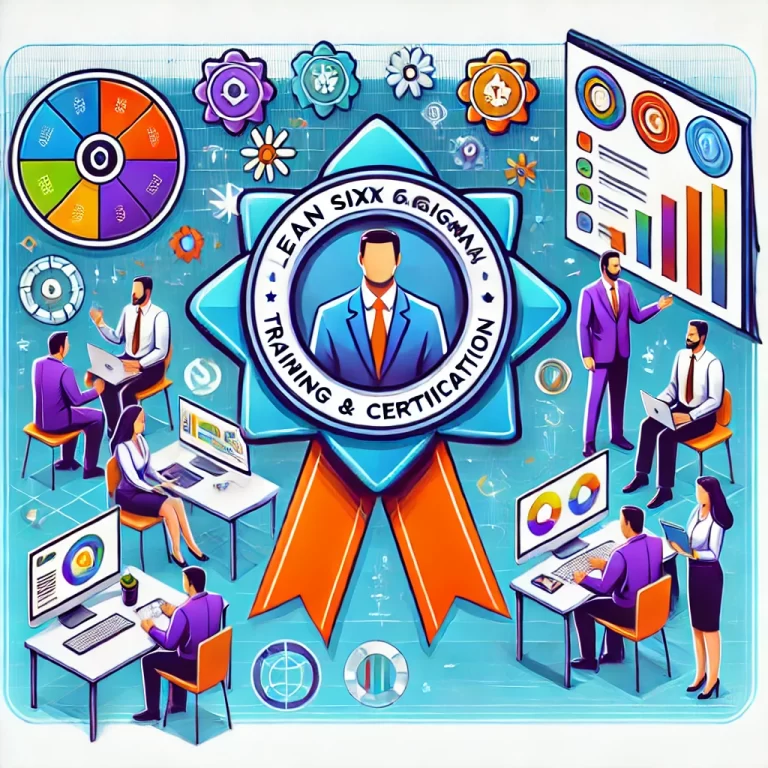Lean Six Sigma (2024) Do I Need Six Sigma Certification?

“This knowledge nugget emphasizes the ongoing evolution and adaptation of Lean Six Sigma in 2024 and in the years to come to combat modern business challenges, particularly in the context of digital transformation. We are witnessing the impact of technology, data analytics, and automation on Lean Six Sigma practices, enhancing their effectiveness in improving efficiency and reducing waste in today’s fast-paced environment.”
1. “The Evolving Role of Lean Six Sigma in 2024: Driving Efficiency in the Digital Age” – Highlights on how Lean Six Sigma continues to evolve and adapt to modern business challenges, especially in the context of digital transformation. We are experiencing how technology, data analytics, and automation have influenced Lean Six Sigma practices, making them more effective in improving efficiency and reducing waste in today’s fast-paced environment.
You may have heard that Six Sigma is no longer relevant today and that organizations like Motorola and GE were in a different era when they embraced the journey of Six Sigma. Honestly speaking, I have been hearing this for the past 2 decades and the only thing I have observed is that more and more organizations have adopted the Lean Six Sigma methodology the truth is that the Service Industry showed considerable growth in producing the number of Black Belts and Yellow Belts. I have seen and consulted organizations from various industries in 2024 and observed that Lean Six Sigma has continued to evolve to meet the needs of businesses operating in a highly digital world. As organizations embrace digital transformation, the principles of Lean Six Sigma, which focuses on eliminating waste and reducing process variation, are becoming even more essential for driving efficiency.
In this digital age, Companies depend on data strategies and cutting edge analytics to enhance decision making speed and streamline operations efficiently. Utilizing Lean Six Sigma methodologies is crucial, in examining data trends for inefficiencies detection and workflow enhancement. Whether it involves automating tasks or enhancing customer satisfaction through data insights Lean Six Sigma offers a systematic methodology, for enhancing productivity and ensuring top notch quality levels are achieved effectively.
Furthermore the incorporation of AI and machine learning, into Lean Six Sigma methodologies is enabling companies to make more decisions enabling ongoing enhancements on a larger and faster scale than ever seen before. To put it simply Lean Six Sigma, in 2024 isn’t solely centered on the conventional process enhancement—it involves merging advancements with established practices to develop intelligent and efficient operations.
2. How Lean Six Sigma Continues to Shape Business Success in 2024 – Like the previous decades in 2024 as well Lean Six Sigma will remain a cornerstone for driving business success by combining two powerful methodologies: Lean and Six Sigma. We all know in a nutshell that Lean means Speed and Six Sigma means defect reduction. Together, they create a robust framework for continuous improvement, ensuring that businesses can optimize their operations while maintaining high quality. Like other methodologies, Lean Six Sigma continues to evolve by integrating advanced technologies such as artificial intelligence (AI), automation, and data analytics. Since Lean Six Sigma is about efficiency and effectiveness. These tools enhance its effectiveness by providing faster, data-driven insights into inefficiencies, allowing for real-time improvements.
Lean Six Sigma and Customer Experience – Gone are the days when customers had limited choices from limited sellers. Today’s businesses are in deep competition and more focused than ever on delivering exceptional customer experiences. Lean Six Sigma helps companies streamline their customer-facing processes, reduce wait times, and ensure consistency in service delivery.
Building a Culture of Continuous Improvement – Before 2024 and beyond 2024, any organization that truly adopted the Lean Six Sigma methodology has witnessed a culture of Continuous Improvement within their departments. One of the core principles of Lean Six Sigma is fostering a culture of Continuous Improvement. By adopting Lean Six Sigma, companies can ensure that employees at all levels are engaged in improving processes, thinking out of the box, solving problems, and driving innovation.

Syed Saif has over two decades of experience in Quality, Excellence, Innovation, Six Sigma, Lean, and Customer Services. He is a Certified Master Black Belt, ISO Lead Auditor, High Impact Trainer, Certified Business Excellence Assessor, Certified on Innovation Business Model Canvas, and holds a PG diploma in Customer Relationship Management. Syed Saif has trained thousands of people, from students to CEOs on various improvement methodologies and self help techniques, and has worked in various industries including BPO, Telecom, IT, Insurance, Manufacturing, and Healthcare. Prior to his full-time consulting role, he served as Vice President for a Leading Insurance Company and as National Head of Quality, Innovation, and Service for Corporate and Sales Functions. See our services page for more details on what we do and how can we help you / your organization.